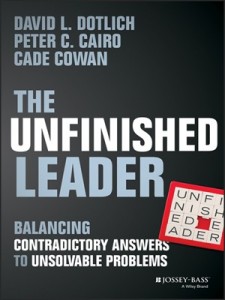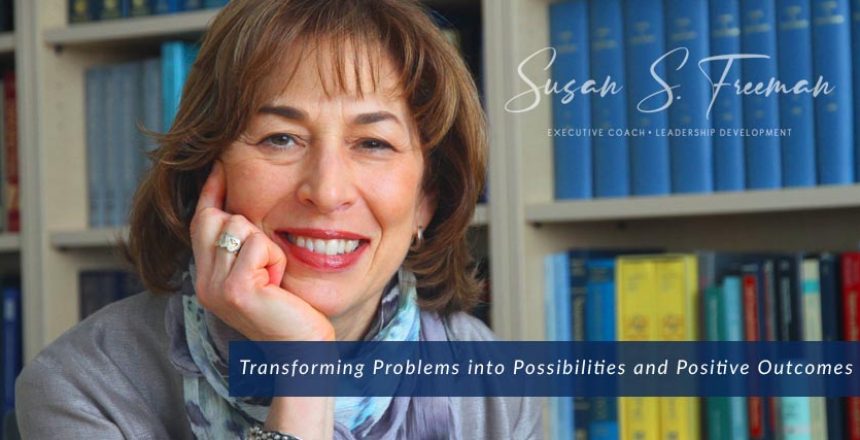This week’s tip comes from Leading Blog. It is resonant with the principles and practices of Step Up Leadership: curiosity, receptivity and deep listening.
 There are problems and there are paradoxes. The trouble is when we treat paradoxes as problems because then our decision making process becomes paralyzed, inflexible, incomplete, isolated and closed.
There are problems and there are paradoxes. The trouble is when we treat paradoxes as problems because then our decision making process becomes paralyzed, inflexible, incomplete, isolated and closed.
Paradoxes are recurring issues that are familiar and present throughout organizations today: the conflicting needs of purpose and profit, short- and long-term goals, local versus global demands, and the need for a flatter, more nimble organization that still executes with discipline.
Paradoxes deal with uncertainty and ambiguity. They take us away from the familiar, the control, consistency and closure we seek. If you crave control you won’t handle paradoxes well.
Authors David Dotlich, Peter Cairo and Cade Cowan make an important statement in The Unfinished Leader:
“The only way to become a finished leader is to remain an unfinished one.”
That is to say, a leader open to possibility. “Leading through complexity requires giving up the illusion of control, consistency, and closure, while embracing the reality of being permanently unfinished.”
Their research has shown that only about a third of leaders recognize paradoxes and handle them differently than they do problems, another third know they need to, and another third fail to see paradoxes at all. The Unfinished Leader offers ways in which you can learn to think differently about paradoxes and then provide tools for resolving paradoxical problems.
Key to resolving paradox is collaboration and that means letting go of control—sharing control for solving the paradox. It means letting a purpose and not a plan guide your way. “Embracing best practices from others, admitting to not having the solution, and absorbing the variety of the world prepare you to identify paradoxes and select right actions.”
I’ll leave you with three thoughts from The Unfinished Leader:
Too often, people do not adequately develop the interpersonal skills for collaboration, do not get beyond the thirst for control, consistency, and closure, do not work to mitigate their personal derailers, and do not overcome the human reluctance to act in the face of ambiguous, paradoxical problems.
Team members cannot fruitfully collaborate if someone always insists on controlling the outcome while excluding others. Nor can they do so if someone insists on acting consistently with old mental models even as times change. Nor can they act effectively if everyone demands closure on problems that need frequent revisiting.
If we had leaders that would declare they have to collaborate more intensively to find actions that ameliorate things now and demand a fresh look later, we would have leaders we all could call role models:
Leaders who demanded problem-solving control, yes, but yielded to paradox-solving delegation. Who demanded consistency of values and purpose, but embraced flexibility in thought and action. Who demanded closure for tame problems, called for ongoing management of society’s most wicked ills. These kinds of leaders would indeed include disciples of analysis, decision making, and execution. But they would also include masters of inquiry, collaboration, and action in the face of ambiguity.”
We invite your comments here. If you are curious about how to develop these competencies, schedule a complimentary “Breakthrough Your Barriers” strategy session. Transcend unfinished leadership!

